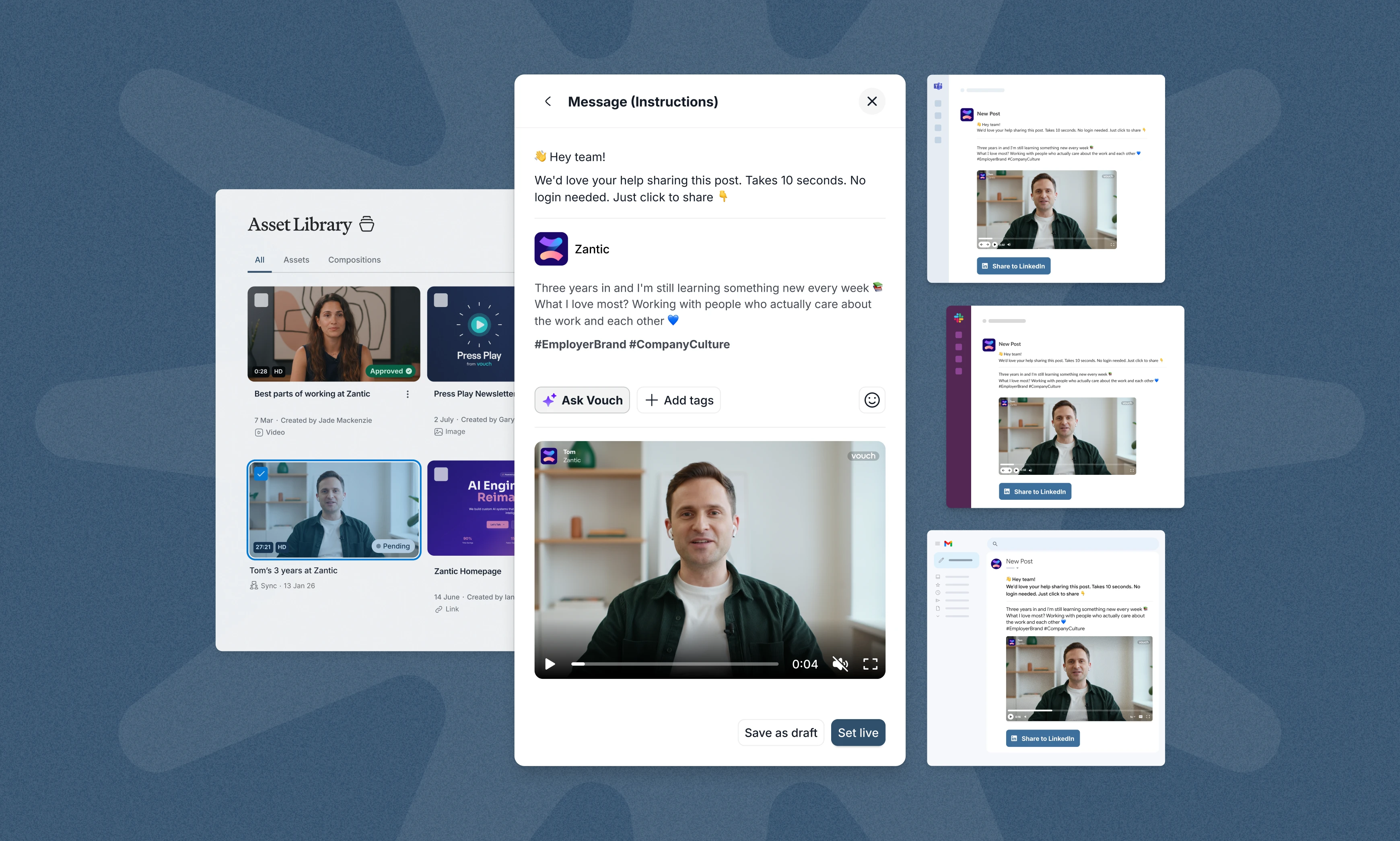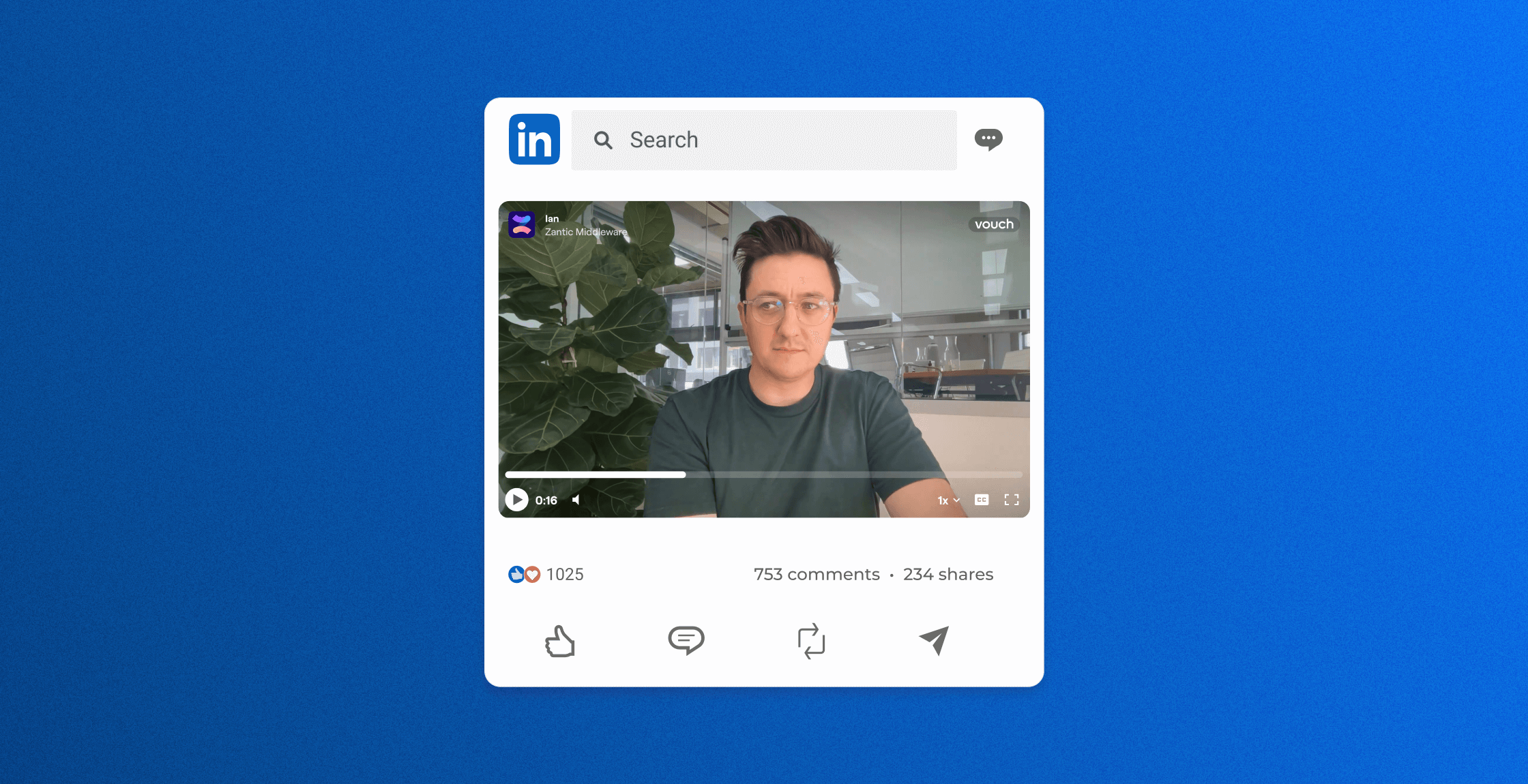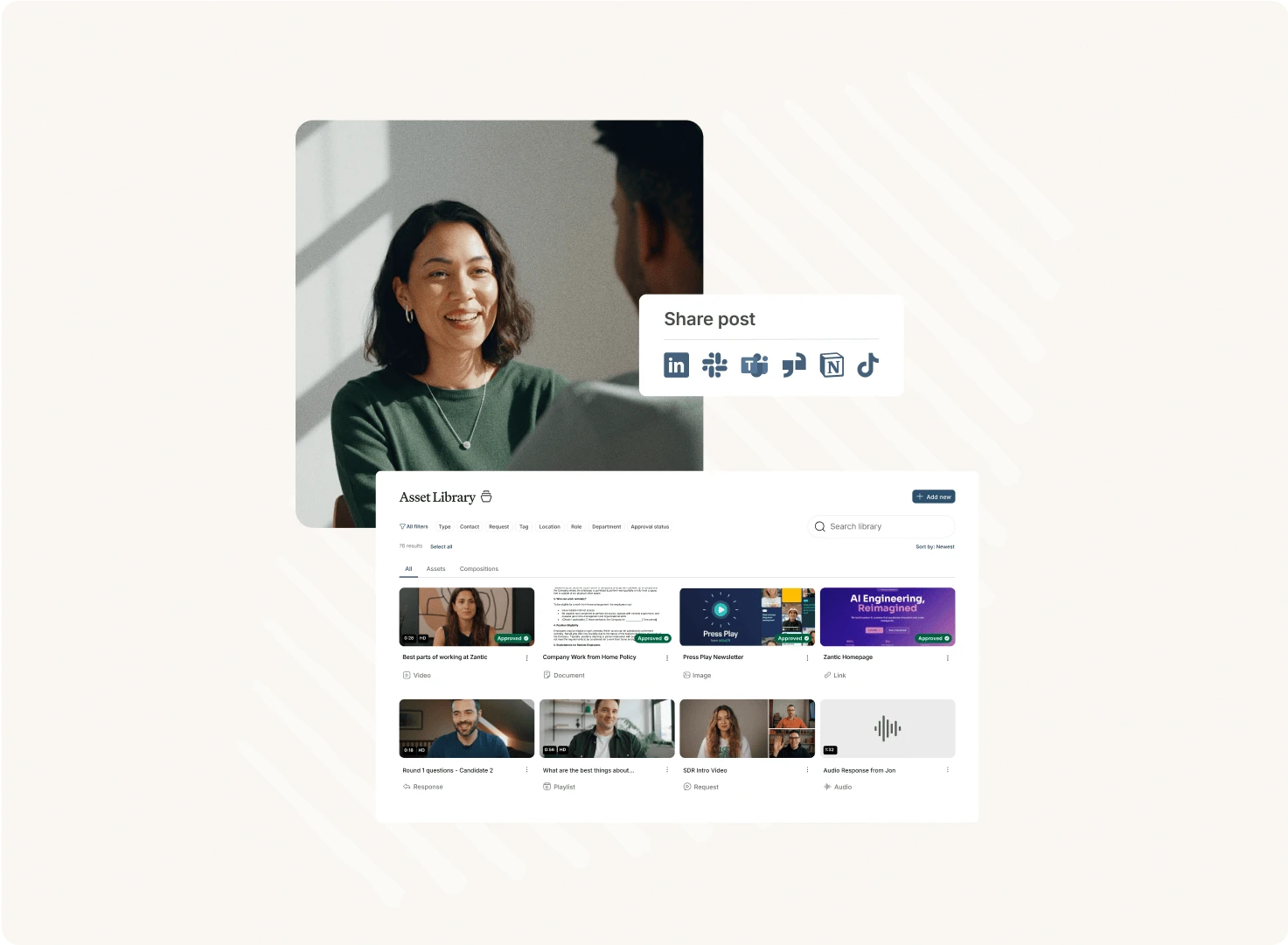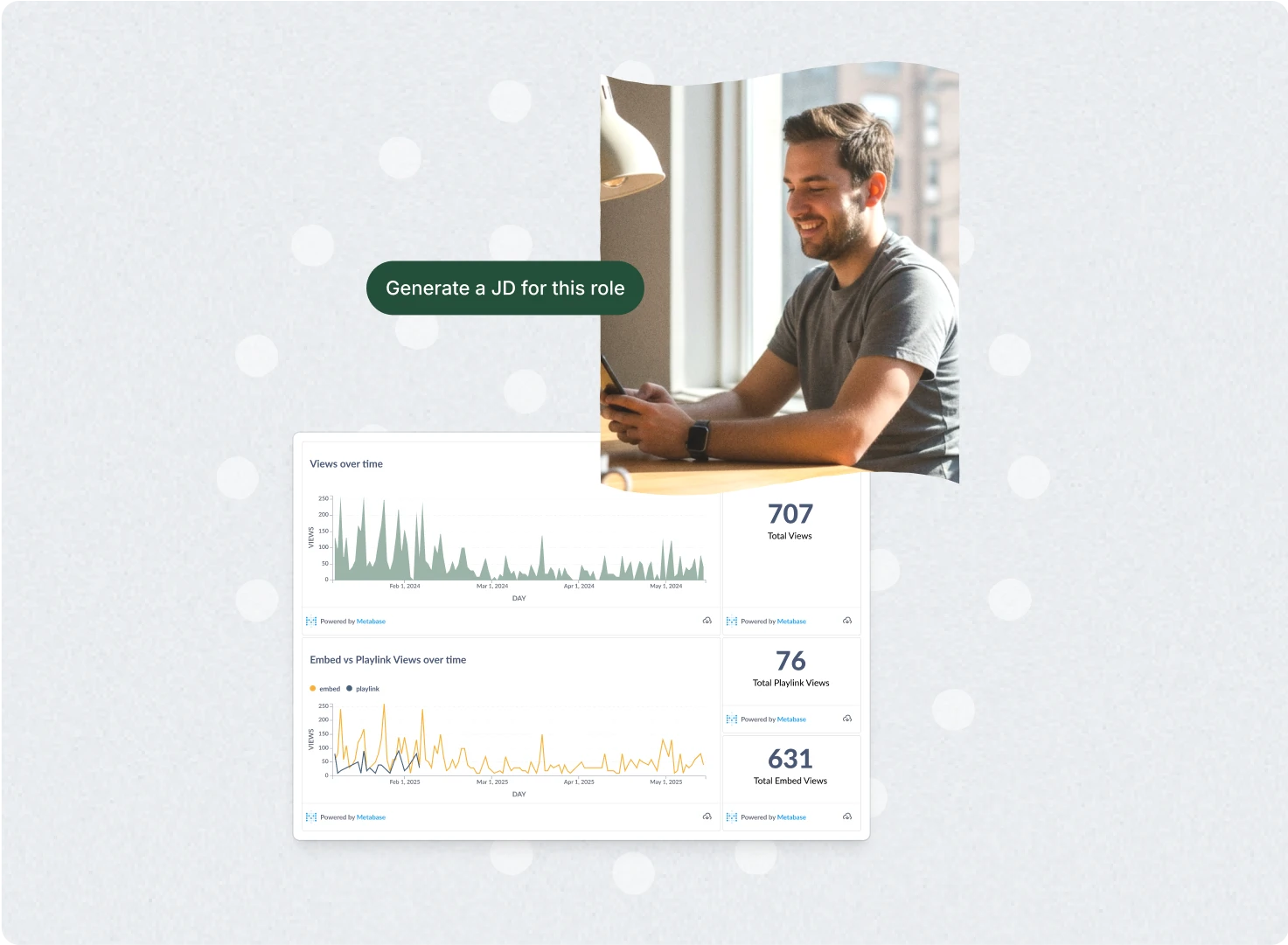Social media has become a given part of modern society, with billions of people around the world using various social networking platforms to connect and engage with friends, families and the brands they love.
Leading businesses and their marketing teams have been harnessing the power of social media for years now. However, until recently, social media was not a common channel for recruitment - aside from LinkedIn, but in this article, we're not limiting our channels to LinkedIn.
Today, 79% of job applicants use social media in their job search, and 70% of hiring managers say they’ve successfully hired with social media. (Betterteam). Add to that, 71% of Hiring Decision-Makers Agree Social Media is Effective for Screening Applicants too (PR Web), and leveraging social media recruitment strategies is a great way to reduce both cost-per-hire and time-to-hire.
So let's dive in to social media for recruitment in 2026!
What is Social Media Recruitment?
The days of relying on text-based job boards and even recruitment agencies are now limiting when it comes to finding the best candidates for your open positions.
Today, social media platforms like Facebook, Instagram, LinkedIn, Twitter and even YoutTube provide highly effective ways to attract potential employees - both active and passive candidates. In this article, we explore Social Media For Recruitment in 2026, its benefits and potential risks if you get it wrong.
Social media recruitment is the process of using social networks to attract and hire potential employees. It involves creating a strong online presence (your Employer Brand), showcasing your employee value propositions, promoting job opportunities, and engaging with candidates through your social networking channels.
Social media recruitment is so effective because it helps you to tap into a wider pool of candidates, including passive job seekers who may not actively be looking for any new job opportunities but could still be "interested in the right position". Passive candidates can be some of the very best employees. Recruiters should also provide clear guidelines for how interested parties should apply, making it easier for potential candidates to express their interest in the position.
Social media recruitment, also known as social media recruiting, is the process of using social media platforms to find and attract potential candidates for job openings. This method can save businesses significant time and money by streamlining the traditional recruiting process. With additional social strategies like targeted advertising, companies can get in front of specific demographics and skill sets, making it easier to find suitable candidates for their open positions. This eliminates the need for costly recruitment agencies that may only sometimes yield the desired results.
What Are The Benefits of Social Media Recruitment?
There are numerous benefits of using social media for recruitment, some of which we have already touched upon.
One of the most significant advantages is the ability to reach a large and diverse pool of candidates. With billions of people using social media daily, companies can tap into a wide range of demographics and skill sets that may not be accessible through traditional recruiting methods. This increases the chances of finding the right fit for a job position. Let's break down the benefits of social media recruitment even more: Benefits of Social Media Recruitment.
1. Significantly expand your candidate pool
With social media, you have the potential to reach billions of daily social media users and an opportunity to tap into various demographics and skill sets that traditional methods can't provide. During this process, you can also build your employer brand and leverage fast, cost-effective recruitment techniques like video.
2. Targeted advertising
With social media, you can tailor job postings and ads for niche roles and promote them in a highly cost-effective way. The ability to specifically target qualified individuals increases with platforms like LinkedIn, which rapidly increases the chances of finding the ideal candidate.
3. Showcasing your company culture and values
The opportunity to display your company's unique culture and values can't be underestimated, not only for attracting potential and current employees but also to build a more engaged and motivated workforce. Creating a strong employer brand that appeals to top talent is key today, and every large company is using videos like Vouch to show why their workplace is the ideal place to work.
4. Direct communication with candidates
Social media is not a one-way street! Social media also facilitates easy and fast communication with potential candidates, which provides a much better candidate experience. Engage with potential employees and answer their questions to add a personal touch to the hiring process. The communication also allows for the pre-screening of candidates and a better understanding of their soft skills.
5. Data and Insights for future hiring strategies
Unlike traditional methods, social media lets you gather valuable data and insights on your hiring strategies. Platforms like LinkedIn and Facebook offer analytics that help you track the success of job postings and ads. Analytics also helps you optimize future recruitment efforts and make data-driven decisions for future talent acquisition.
How Do You Leverage Social Media for Recruiting?
To make the most out of social media recruitment, companies need to have a strong online presence and an understanding of their target audience. This involves creating compelling and engaging content that showcases the company's culture, values, and job opportunities.
Regularly posting on social media platforms also helps to keep potential candidates engaged and interested in the company.
In other words, social media for recruitment is not a "one shot". It takes time and consistency.
Moreover, businesses often use targeted paid social media advertising, promoting job listings that reach out to specific demographics and skill sets. This not only ensures that the right people see the job postings but also helps reduce recruitment costs without external hiring managers.
It is also crucial for companies to have a strong employer brand on social media.
This involves showcasing the company's work culture, employee experiences, and values through various types of content, such as photos and video posts of the daily work life of employees. By providing an inside look into the organization, businesses can attract top talent who share similar values and are likelier to thrive in the company's environment. This is especially important in today's job market, where candidates are looking for companies that align with their own values and beliefs. Utilizing social media to highlight company values, like Hilton does with their #WeAreHilton campaign, can be a powerful tool for recruiting top talent.
The AI-enabled workspace for talent teams.
- Unified workspace for talent teams
- Accelerate hiring with AI tools
- Auto-generate polished hiring and employer brand content
- Easily repurpose assets across all channel
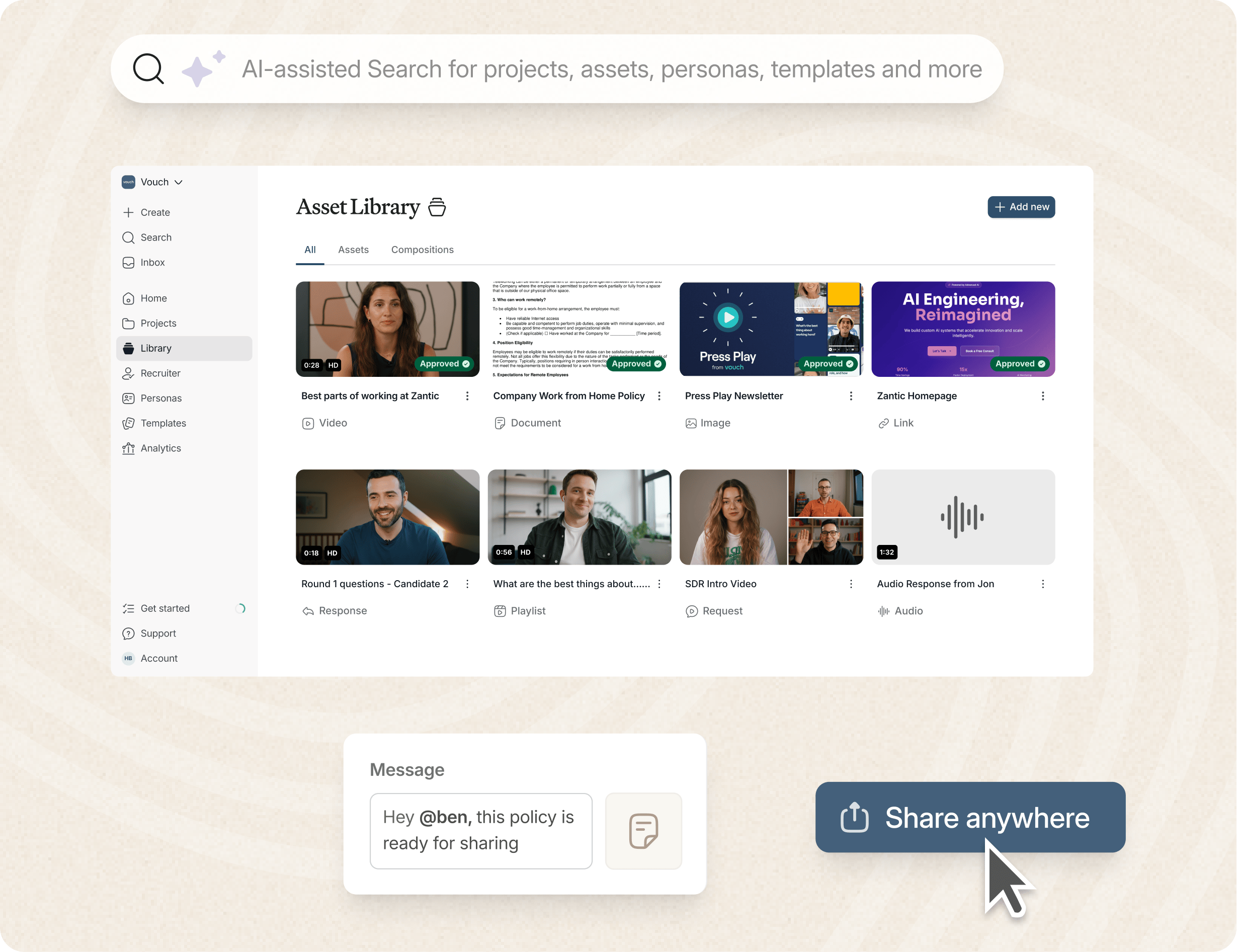
What Are The HR Considerations When Using Social Media for Hiring?
While social media recruitment provides numerous benefits, there are also some key considerations that companies should keep in mind to ensure a successful and ethical hiring process.
1. Having clear policies
Firstly, it is essential to have clear policies and guidelines in place for using social media as a recruitment tool. These best practice guidelines include what type of content can be posted and how interactions with potential job candidates should be conducted.
2. Response times
Another important aspect of a social media recruitment strategy is engaging with potential candidates to create a real personal connection. Companies should actively respond to comments and messages, provide timely updates on job openings, and engage in conversations with interested individuals, who are prospective candidates. This not only helps in building a relationship with potential employees but also allows businesses to showcase their company culture and values.
3. Remove any potential biases
Companies should also be wary of any potential biases that may arise when using social media for hiring. It is crucial to ensure that all job postings and advertisements are inclusive and do not discriminate against any particular group. Businesses should avoid relying solely on social media for recruitment and continue to use traditional methods of social hiring as well to avoid any unintentional exclusion of specific demographics.
4. Privacy and data protection
Another important consideration is the protection of personal information and privacy. Companies must comply with relevant data protection laws and ensure that all personal information collected through social media recruitment is handled securely and ethically. This includes obtaining consent from candidates before accessing their social media profiles and using any information gathered for recruitment purposes only.
5. Misinformation
Companies should be mindful of the potential for misinformation and fake profiles on social media. It is crucial to verify the information and qualifications of candidates before making any hiring decisions. This can be done through background checks or by using reputable recruitment agencies.
It is essential to maintain a professional and respectful tone when interacting with potential candidates on social media. This includes avoiding discriminatory language or behaviour and treating all candidates with respect and fairness throughout the hiring process.
Common Mistakes to Avoid When Using Social Media for Recruiting
While social media recruitment can be a powerful tool, there are also some common mistakes that companies should avoid to ensure its success.
No clear strategy
One of the most common mistakes is not having a clear strategy or goal for using social media as a recruitment tool. Just posting random job ads is not the right way to attract top talent. You need to clearly define your objectives and target audience and tailor your content and approach accordingly. This will help create a consistent and effective social media presence for recruiting purposes, with measurable key performance indicators (KPIs) such as reach, engagement, and number of applicants.
Not keeping profiles updated
Moreover, it is essential to update and maintain social media profiles regularly. Outdated or inactive social recruiting profiles can give a negative impression of the company to potential candidates. Companies should also ensure that all information on their social media pages is accurate and up-to-date, including job postings and contact information. Optimizing your social profiles for search is also important, as it makes it easier for both passive and active job seekers to find your company and job postings.
Following too many common trends
Another mistake is to avoid blindly following the latest trends and focus on platforms and content that are not relevant to your target audience. It is crucial to research and understand which social media channels are popular among potential candidates in your industry or location of interest. This will help in effectively reaching out to the right people and maximizing recruitment efforts. On the flip side, it is also important to research where your competitors are active on social and what type of content they are creating. This can provide valuable insights and help differentiate your recruitment strategy.
Not leveraging paid promotion
Another common mistake is not utilizing the various tools and paid promotion features on social media platforms. Many companies only use social media for posting job openings and fail to take advantage of targeted advertisements, paid promotions, and analytics. These tools can significantly enhance recruitment efforts by reaching a wider audience and providing valuable insights for optimizing strategies.
9 Tips For Finding the Right Candidates With Social Media
Here are the following tips for companies to effectively find and attract the right candidates through social media:
1. Define your target audience
Before creating any content or posting job openings, it is crucial to identify the specific demographics, skills, and qualifications of your ideal candidate. This will help create targeted and relevant content that will resonate with potential applicants.
2. Use relevant hashtags
Hashtags are a powerful tool for reaching a wider audience on social media. Companies should research and use industry-specific or job-related hashtags to increase the visibility of their posts and attract potential candidates.
3. Utilize employee advocacy
Encourage your employees to share job postings and company updates on their personal social profiles. This can greatly expand the reach of recruitment efforts and also add a personal touch to the content, making it more relatable and trustworthy to potential candidates.
4. Engage with potential candidates
As mentioned earlier, engagement is a crucial aspect of all recruitment. Companies can engage with potential candidates by responding to their comments and messages, asking for their opinions on relevant topics, and showcasing the company culture through behind-the-scenes content. This helps in building a relationship with candidates and keeping them interested in potential job opportunities.
5. Promote company culture
Facebook, Instagram, LinkedIn and Twitter are excellent platforms for showcasing the company's values, work culture, and employee testimonials, which is really easy with modern tools like Vouch Video. This can attract candidates who align with the company's vision and mission and also give them an insight into what it would be like to work at the company. Share content that highlights your company's positive attributes and showcases it as a great place to work, as this will help build your company's online reputation and attract passionate candidates.
6. Utilize paid promotions
Platforms offer targeted advertising options that can greatly enhance recruitment efforts. Companies can use these features to reach a specific audience based on demographics, interests, and location. This helps ensure that the right people see job postings and increases the chances of attracting qualified candidates.
7. Monitor and analyze results
It is crucial to regularly monitor the success of all recruitment efforts and make necessary adjustments. Companies can use analytics tools provided by social media platforms to track metrics such as reach, engagement, and click-through rates. This data can help in optimizing strategies for better results.
8. Collaborate with influencers
Collaborating with social influencers who have a strong following in the industry can significantly increase the visibility of job postings and attract potential candidates. Companies can also collaborate with industry experts for guest posts or takeovers, which can showcase the company's expertise and values to a wider audience.
9. Utilize employee referrals
Employee referrals are still one of the most effective ways to find qualified candidates. Companies can use channels to encourage employees to refer their connections for job opportunities and offer incentives for successful hires, creating a network of brand ambassadors. This not only helps in finding the right candidates but also promotes a positive company culture where employees feel valued and engaged.
With these tips in mind, companies can effectively leverage the power of social media for finding and using talent acquisition to attract the right candidates. It is important to remember that these are constantly evolving platform, and companies should stay updated on new trends and strategies to stay ahead in the recruitment game. Utilizing various platforms, such as LinkedIn, Twitter, and Instagram, can help companies reach a wide range of potential candidates and showcase their company culture and values.
How Do You Pick the Right Social Media Channels for Recruitment?
With a vast array of social media platforms, companies now have many options to choose from when it comes to recruitment. However, not all social media channels suit every company or industry.
Here are some factors to consider when picking the right platforms for recruitment:
Demographics
Each platform has a different user base with varying demographics and interests. For example, LinkedIn is primarily used by professionals and job seekers, while Instagram is popular among younger audiences. Companies should research the demographics of each platform and determine which aligns best with their target candidate pool.
Industry
Some industries may have a stronger presence on specific platforms. For example, creative industries like design and marketing may be more active on visual-based platforms like Instagram and Pinterest. Companies should consider the nature of their industry and whether it is relevant to the platform they are considering for recruitment.
Engagement
Engagement is a crucial aspect of social media recruitment. Companies should research the engagement rates for each platform and determine which ones have a higher potential for reaching and engaging with their target audience. It is also important to note that different types of content may perform differently on other platforms, so companies should consider this when creating their recruitment strategy.
Advertising options
Social media platforms offer various advertising options that can significantly enhance recruitment efforts. Companies should research the advertising features available and determine which ones align with their goals and budget. For example, LinkedIn offers targeted job postings, while Facebook and Instagram have a variety of ad formats, such as sponsored posts and stories. These resources will also better inform you of which platforms are performing well with your audiences so that you can continue to focus and tailor your recruiting efforts.
Company culture
As mentioned earlier, social media can be an excellent platform for showcasing company culture. Companies should consider which platforms best allow them to portray their values and work culture to potential candidates. For example, Twitter may be a better platform for sharing real-time updates and engaging with followers, while LinkedIn can be used for more professional and informative content.
FAQs
What is social media recruitment?
Social media recruitment is the practice of using social media platforms like LinkedIn, Facebook, and Twitter to attract, engage, and hire potential candidates. This approach benefits companies by providing a vast talent pool, allowing for targeted job postings, and enhancing employer branding to reach a broader and more diverse audience.
How do you recruit effectively on social media?
Recruiting effectively on social media involves several key strategies:
- Define Your Target Audience: Identify the demographics, interests, and behaviors of the candidates you're looking to attract.
- Choose the Right Platforms: Select social media platforms where your target audience is most active. LinkedIn is great for professional networking, while platforms like Facebook, Instagram, and Twitter can reach a broader audience.
- Optimize Your Profiles: Ensure your company's social media profiles are complete, professional, and engaging. Use keywords related to your industry to improve visibility.
- Create Engaging Content: Share content that showcases your company culture, values, and job opportunities. Use a mix of text, images, and videos to make your posts more engaging.
- Use Hashtags: Incorporate relevant hashtags in your posts to increase visibility among users searching for specific topics.
- Engage with Your Audience: Respond to comments, messages, and mentions promptly. Engaging with your audience shows that you're active and interested in interacting with potential candidates.
- Run Targeted Ads: Use social media advertising to target specific demographics and locations. You can create ads to promote job openings or highlight your company culture.
- Utilize Employee Advocacy: Encourage your employees to share job openings and company updates on their own social media profiles. This can help you reach a wider audience and attract candidates through employee referrals.
- Track and Analyze Results: Monitor the performance of your social media recruitment efforts using analytics tools. This will help you understand what's working and make adjustments to improve your strategy over time.
Which social media platforms are most effective?
The effectiveness of social media platforms for recruitment varies depending on the industry and target audience. Platforms like LinkedIn are popular for professional networking and job postings, while Facebook and Twitter are useful for reaching a broader audience, especially for the millennial age group. Companies should choose the platforms that align with their industry and the characteristics of the candidates they seek to attract.
Is social recruiting more effective than traditional recruiting?
Social recruiting can be more effective than traditional recruiting methods in many ways, but it also has its limitations. Here are some key points to consider:
Advantages of Social Recruiting:
- Wider Reach: Social media platforms have billions of users, allowing you to reach a larger and more diverse pool of candidates compared to traditional methods.
- Targeted Advertising: Social media advertising allows you to target specific demographics, interests, and locations, increasing the chances of reaching qualified candidates.
- Cost-Effective: Compared to traditional advertising and recruiting methods, social media recruiting can be more cost-effective, especially for small and medium-sized businesses.
- Brand Building: Active engagement on social media can help build your employer brand, making your company more attractive to potential candidates.
- Faster Recruitment Process: Social media allows for real-time communication, which can help speed up the recruitment process by enabling faster responses and interactions with candidates.
Limitations of Social Recruiting:
- Limited Reach for Some Industries: While social media has a broad reach, it may not be effective for recruiting in industries where professionals are not actively using social media for job searches.
- Information Overload: With the vast amount of information on social media, it can be challenging to stand out and capture the attention of potential candidates.
- Quality of Candidates: While social media can help you reach a large number of candidates, it may be harder to filter and find the most qualified candidates among them.
- Privacy Concerns: Some candidates may be hesitant to engage with recruiters on social media due to privacy concerns..
How can companies ensure that their social media recruitment efforts are compliant with legal and ethical standards?
To maintain legal and ethical standards in social media recruitment, companies should be mindful of discrimination, privacy, and data protection laws. They should avoid discriminatory language or practices and obtain proper consent when collecting and using candidate data. It's essential to stay informed about the evolving legal landscape and ensure that their social media recruitment practices are compliant to avoid potential pitfalls and legal complications.
Is it okay to use social media as part of an interview process?
Using social media as part of the interview process can be acceptable, but it's important to do so ethically and legally. Here are some guidelines to consider:
- Review Publicly Available Information Only: It's generally acceptable to review publicly available information on a candidate's social media profiles, such as their LinkedIn profile. Avoid requesting access to private information or attempting to bypass privacy settings.
- Focus on Job-Related Information: Use social media to verify information provided by the candidate or to gather additional job-related information. Avoid making hiring decisions based on personal characteristics that are not relevant to the job.
- Be Consistent: If you use social media to screen one candidate, be prepared to do the same for all candidates to avoid bias or discrimination.
- Respect Privacy: Be mindful of candidates' privacy and avoid making assumptions based on their social media activity. Focus on job-related factors when making hiring decisions.
- Comply with Legal Requirements: Ensure that your use of social media in the hiring process complies with relevant laws and regulations, such as those related to privacy and discrimination.
Conclusion: Social Media For Recruitment in 2026
Social media and video have revolutionized the way companies approach the recruitment process.
Both habve become essential tools for reaching and engaging with potential candidates, showcasing your company culture, and building your employer brand.
By utilizing these platforms effectively, companies can attract qualified candidates who align with their values and mission, leading to a more successful hiring process. With constantly evolving trends and algorithms, companies must stay updated on new strategies and adapt to stay ahead in the competitive job market.
The key to social media recruitment is content, and video is the most effective content on almost every platform.
Like to try Vouch?
Loved by companies like Canva, Nike, Cisco, HubSpot, Amazon and more, tools like Vouch make leveraging video in your business remarkably easy.
Be sure to book a Vouch demo today and chat with a video content experts.
You might also like

Elevate Your Brand Today With Vouch
Discover how Vouch can accelerate talent acquisition while helping you stay on-brand.

